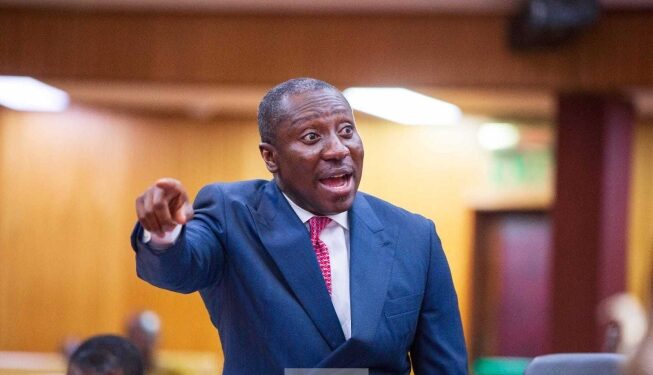Minority Leader in Parliament, Alexander Afenyo-Markin, has condemned the high levels of corruption among political leaders and the youth, warning that the practice is weakening accountability and undermining Ghana’s development efforts.
Speaking at the second edition of the Youth Common Forum in Winneba, Central Region, Mr. Afenyo-Markin said the growing insincerity among Ghanaians has contributed to the collapse of several government initiatives, particularly financing programmes designed to support young entrepreneurs.
“When you get any support for your entrepreneurial prowess and you abuse it, bear in mind that you are denying the next generation an opportunity,” he told the gathering of young people and constituents.
Citing historical examples, he noted that repayment levels for government support schemes have remained poor under successive administrations, revealing “Rawlings introduced the Poverty Alleviation Programme when many traders in the informal sector got some financial support. They did not pay back. Kufuor came and continued.”
“He introduced Mass Lock. If we go into the data and we ask how many people under Kufuor’s government paid back the Mass Lock loan, perhaps we will not even get 5%,” he stated.
Mr. Afenyo-Markin added that similar patterns of default persisted with the National Entrepreneurship and Innovation Programme (NEIP) and other interventions, stressing that such attitudes erode public trust and make it harder for government to sustain initiatives.
Turning to illegal mining (galamsey), the Minority Leader called on the current NDC administration to intensify its efforts to curb the menace, emphasizing “Today, our country stands at a crossroad. Galamsey is getting out of hand. The greed of few who believe they have to destroy our environment to make ends meet is going unchecked. We must all collectively talk about it, else there will be no country for us,” he warned.
He expressed hope that the youth will learn from political leaders and captains of industry to build a future that tackles corruption, promotes accountability, and addresses unemployment.
The Youth Common Forum, which was first held at the University of Professional Studies, Accra, provides a platform for dialogue on governance, accountability, and social development issues between leaders and young people.
Read More @ ATLFMNEWS.COM

























